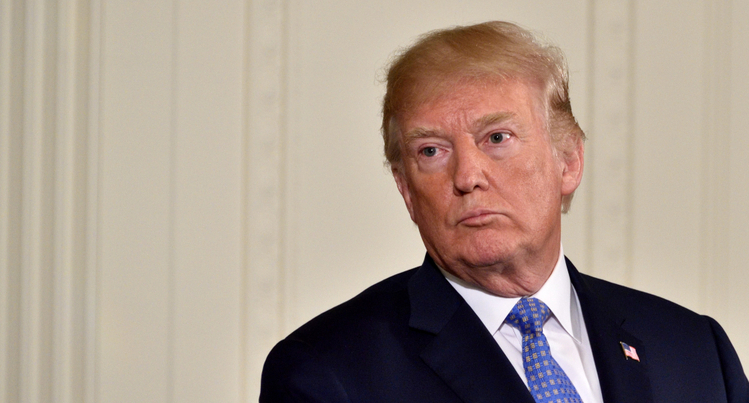About 800 ex-prosecutors say Trump would be charged with obstruction if he wasn't president

President Donald Trump. Photo from Shutterstock.com.
Updated: Donald Trump would have been charged with obstruction of justice if he wasn’t president, based on evidence described in special counsel Robert Mueller’s report, according to a statement signed by hundreds of former federal prosecutors. As of Wednesday afternoon, about 800 former federal prosecutors and Department of Justice attorneys had signed the statement.
The statement follows U.S. Attorney General William Barr’s conclusion that the evidence was not sufficient to establish that Trump obstructed the special counsel investigation.
Lawyers who worked both in Democratic and Republican administrations signed the statement, report the Washington Post and the National Law Journal. Many currently work in large law firms. Among those signing the statement are former U.S. Attorney William Weld, who is running against Trump as a Republican in the 2020 presidential election, and Donald Ayer, a former deputy attorney general in the George H.W. Bush administration.
Protect Democracy had gathered the signatures.
The prosecutors’ statement cites several acts that, in the prosecutors’ view, satisfy the elements of obstruction. They include Trump’s efforts to fire Mueller, his efforts to limit the scope of the investigation to exclude his own conduct, and his efforts to discourage witness cooperation.
The statement cites evidence that Trump sought to have White House counsel Don McGahn fire Mueller, that the president pressured then-Attorney General Jeff Sessions to unrecuse himself, that Trump asked that a message be sent asking Mueller to confine the investigation to future elections, and that Trump had dangled the possibility of pardons.
Mueller didn’t make any conclusions on obstruction. He said in the report that he took into consideration an opinion by the DOJ’s Office of Legal Counsel that an indictment of a sitting president would impermissibly undermine the executive branch’s ability to perform, violating the separation of powers. The report said the special counsel didn’t want to determine whether Trump’s conduct constituted a criminal offense, partly because there would be no trial at which the president could exonerate himself.
Barr defended his conclusion on obstruction in congressional testimony last week. Barr said Trump’s actions were motivated partly because he feared the Mueller investigation was hampering his ability to govern. Trump also was concerned about conflicts of interest, Barr said.
Updated May 8 at 3:47 p.m. to reflect the updated number of signatures.
Write a letter to the editor, share a story tip or update, or report an error.


